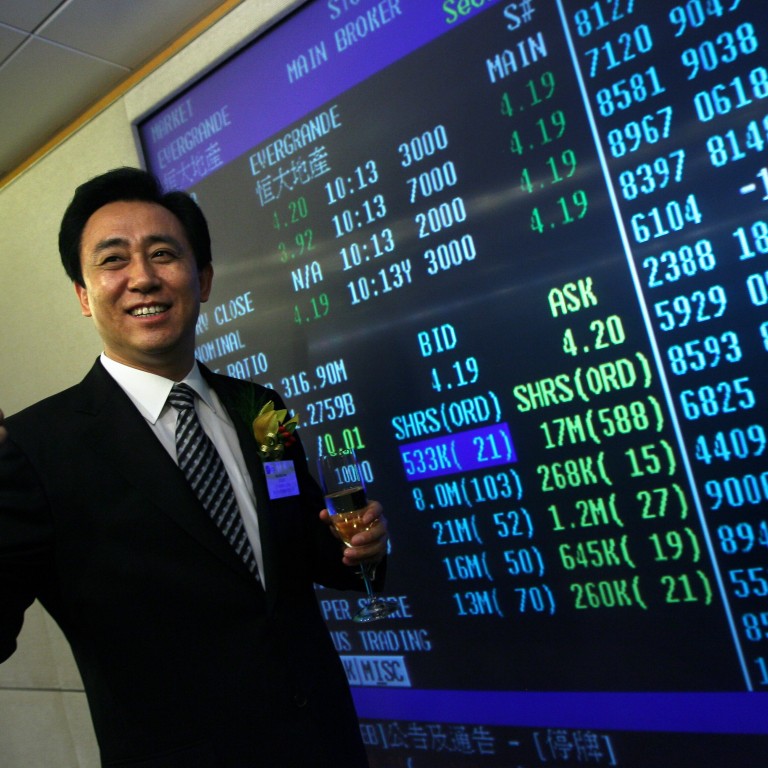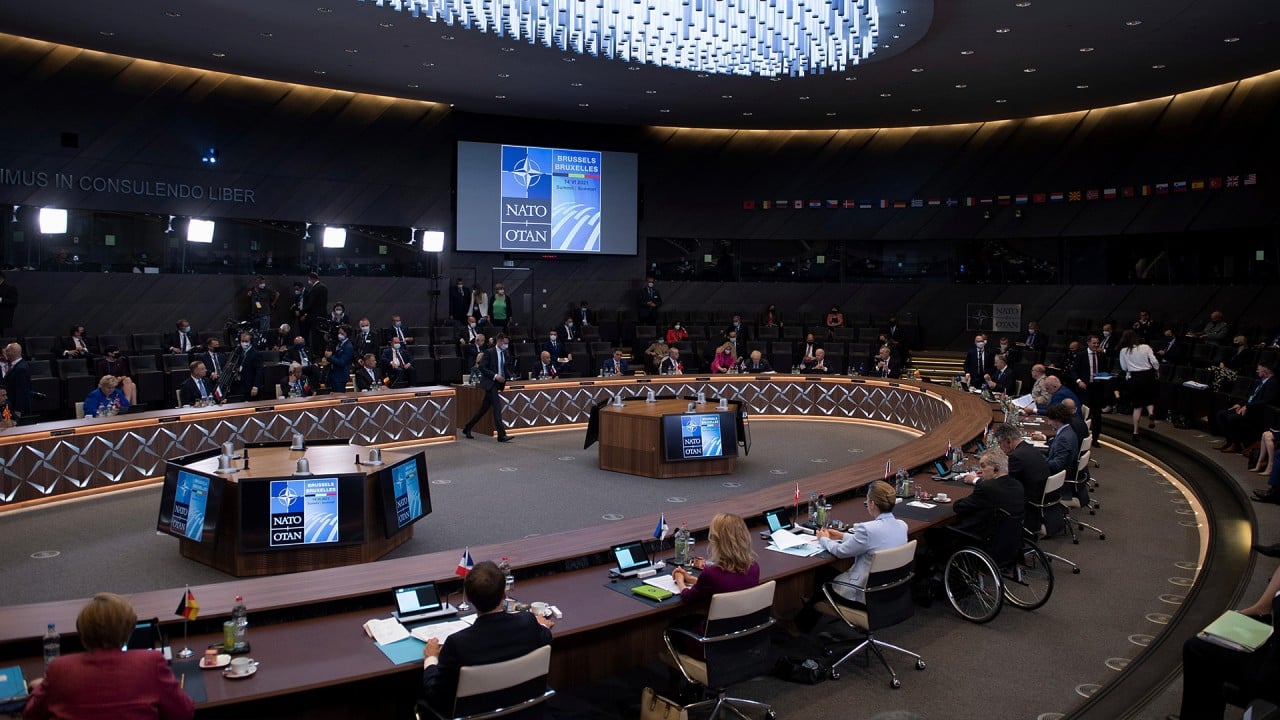
Hong Kong stocks trim weekly gain as Evergrande, Kaisa put US$30 billion of bonds in default while China weakens its currency
- Fitch declared Evergrande and Kaisa in default after both developers failed to repay offshore bondholders this week, putting US$30 billion of debt at risk of haircuts
- China’s central bank raised reserve requirement on foreign currencies to stem yuan’s appreciation after it reached a three-year high this week
The Hang Seng Index slipped 1.1 per cent to 23,995.72 at the close on Friday. The losses trimmed the benchmark’s advance to 1 per cent this week, aided by China’s liquidity injection plan. The Tech Index also retreated 1.1 per cent while China’s Shanghai Composite Index dropped 0.2 per cent.
Alibaba Health Information Technology and biopharmaceutical group WuXi Biologics slid at least 4.3 per cent. Among Chinese developers, Evergrande tumbled 1.7 per cent while Sunac China slid 2 per cent.
“Restraints such as the regulatory crackdown and the debt crisis of Chinese developers continue to weigh on Hong Kong stocks,” Central China Securities said in a report. The Omicron variant also piled on market concerns, it added.
Elsewhere, the offshore yuan fell to as low as 6.3893 per dollar, the weakest level this month, after China’s central bank raised the reserve requirement ratio on foreign currencies for a second time this year. The Chinese currency has strengthened 2 per cent this year to a three-year high.
China’s top leaders are set to kick off the annual Central Economic Work Conference this month, with traders eyeing signals on how far Beijing will dial back its policy tightening measures amid growth slowdown. A central bank report late Thursday showed that a measure of credit growth accelerated last month.
Overseas traders have loaded up on onshore stocks for the past eight days on policy easing bets. They bought 21.7 billion yuan worth of shares through the Stock Connect on Thursday, matching the record daily inflow in May, according to Bloomberg data. Net buying amounted to 9.1 billion yuan on Friday.
Three companies started to trading in Hong Kong. Canbridge Pharmaceuticals slumped 27 per cent and drug maker Asymchem Laboratories slipped 4.6 per cent. Gushengtang Holdings, a Chinese medical service provider, was unchanged.
Other Asia-Pacific markets all declined on Friday, tracking overnight losses in US equities, on renewed concerns about the Omicron variant’s threat to economies. A study found that the Covid-19 strain is 4.2 times more infectious than the Delta in its early stages of transmission.


